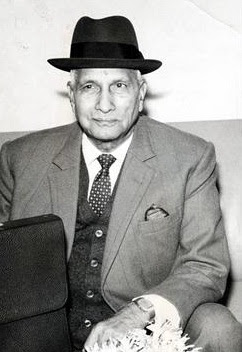Birla, Adamjee and a Calcutta bank
 |
| Ghanshyam Das Birla |
The story of the Interim Government (Congress-Muslim League) formed in 1946 following the Cabinet Mission Plan is fairly well-known. The Interim Government had Jawaharlal Nehru, Liaqat Ali Khan, Vallabhbhai Patel, Ismail Chundrigar, and Rajagopalachari among others. Imagine, Congress and League leaders sitting across the table to run a government. Gandhi and Jinnah stayed out of the Cabinet.
The Congress-League political alliance failed, but capitalists supporting both the parties had a history of collaborations. In the case of colonial Bombay, my area of specialisation, hardly any noteworthy bank (except community centric ones) was established without prominent Parsi, Hindu and Muslim merchants being on the board. Merchants and capitalists knew that having directors from different regions and communities could attract bigger and diverse clientele.
The current day UCO Bank was established in 1943 as The United Commercial Bank Limited. The founder of the Calcutta-headquartered bank was G. D. Birla, but as you can see in the picture below the founding directors came from different lines of trade, region, and community. Ispahani and Sir Adamjee Dawood were staunch supporters of Muslim League and Jinnah. Sir Adamjee and Birla were in the jute trade and enjoyed good relations. Navinchandra Mafatlal and M L Dahanukar were based in Bombay. The former was in textiles, and the latter in sugar.
After Partition, Ispahani and Adamjee were no longer directors in the United Commercial Bank Limited, but branches remained in regions which became Pakistan. Some others like the Bombay-based Habib Bank shifted headquarters to Karachi, but maintained branches in India. In the 1950s, branches of Indian and Pakistani banks in each other countries shut down.
United Commercial Bank was nationalised in 1969 by the Government of India. In 1985, the bank's name was changed to UCO Bank to avoid confusing it with the Dhaka-headquartered United Commercial Bank.
For more on:
Interim Government see India in the Interregnum by Rakesh Ankit
G D Birla see The Life and Times of G D Birla by Medha Kudaisya
Partition and Muslim merchants see Muslim businessmen in South Asia by Claude Markovits



Comments
Post a Comment